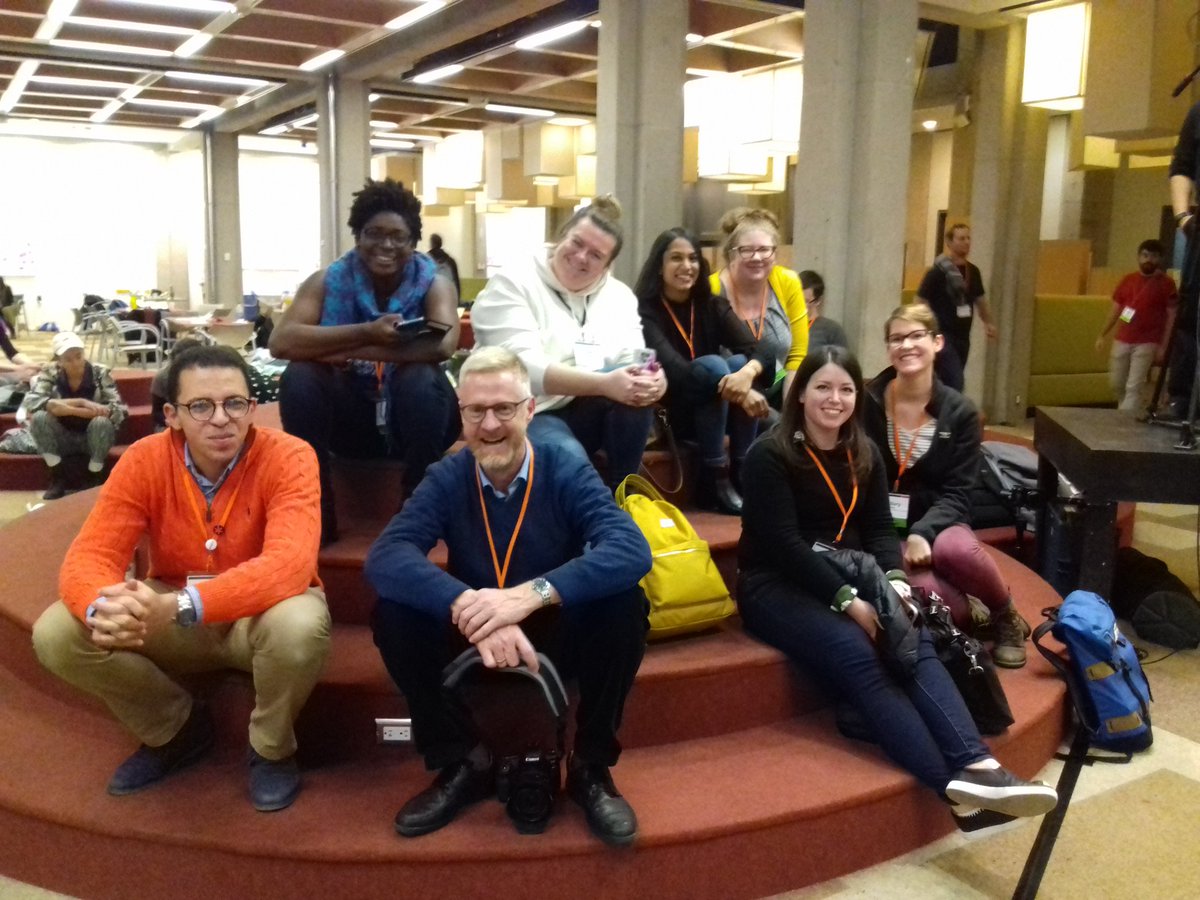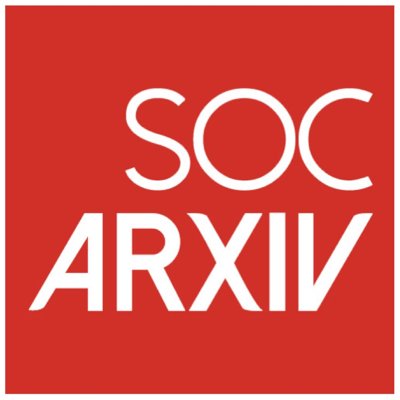
Jacqueline Phillips and other attendees at OpenCon. Photograph courtesy of Erin McKiernan.
OpenCon is a unique conference that brings together leading early career academic professionals and students from across the world to catalyze action toward a more open system of research and education. This year, Temple University Libraries was proud to sponsor Assistant Professor of Instruction in the Department of Kinesiology (College of Public Health) Jacqueline Phillips to attend OpenCon. The following is a guest post from Dr. Phillips about her experience.
This past weekend I participated in the 2018 OpenCon conference. Since this was my first OpenCon conference I wasn’t very sure of what to expect, but knew it was a gathering of early career professionals with a passion for open access (OA), so I was eager to take part. As a newcomer to the OA world this was my first exposure to an open community beyond my university. Overall, I was completely blown away by the programming and the passion of everyone there to collaborate and better their communities.
Open scholarly work was a new topic I was introduced to at this conference. Although I’ve known about open access journals and the concept of open data, I learned about other ways to make your work open such as posting preprints. Preprints are drafts of manuscripts that are posted online prior to being peer reviewed and formally published. Since a paper can sit in a purgatory-like state for a lengthy amount of time during the standard journal submission process, “pre-printing” enables the author(s) to share their work right away with those in their field. Readers can leave comments or questions, and the paper can be updated with revisions or with a final manuscript after it’s been published. By getting a DOI for a preprint, someone’s work is protected, and others are able to cite the paper. This format enables an early conversation to occur while also helping to connect individuals and advance their work.
As an instructor, my ears always perked up when the topic of open education resources (OER) arose. Strategies on finding already made resources were discussed along with troubleshooting areas of creating resources, like finding or making images (an issue commonly faced in the sciences). Some of the most useful bits of information that I’ll be taking home in this area came through networking and talking to others who have been through this process and were able to provide me with practical tips and wonderful sources. Beyond the making of or incorporation of OER, the discussion that most resonated with me in this area was the importance of student advocacy on campus for OER. A few students were in attendance at OpenCon who spoke about the clubs they were a part of whose mission it is to educate other students about what OER are and how they are impactful. Beyond educating their fellow peers on the subject, they also push for their administration to recognize the importance of the incorporation of OER on campus. This is the type of movement that can help to incentivize faculty to incorporate open materials into their classes, and encourage administration to change the metrics of success that faculty are graded upon for merit or promotion. Student advocacy was a different approach to fostering a cultural change on a campus that seemed to be very successful within these communities.
One particular aspect of the conference I was impressed by was the diversity. Not only the diversity of the attendees, but also presenters and organizers. By having people of different backgrounds and perspectives from around the world involved with all aspects of this event, it contributed to the depth and range of discussions that were held. A topic was presented about how sometimes our mainstream movement to advance OA can inadvertently perpetuate the marginalization of communities this movement aims to help. A lack of diversity at events such as this would only reinforce this oppression; however, I feel the organizers were sensitive to this concept and handled the conference in a way that will help to break down some of these barriers. There was even transparency about the demographics of the conference. The organizers informed us all about the numbers and breakdown of gender, ethnicity, profession etc. of everyone at and involved with the conference. This holds the conference to a higher standard and only helps to make the event even more productive. I hope that we’ll see other conferences begin to incorporate this presentation of the statistics into their events to show commitment to diversity and equity.
The last day of the conference featured a do-a-thon (similar to the concept of a hackathon) where attendees worked in groups to create solutions to particular issues that were brought to the table. All of our work and action plans are available online to the public so that anyone can help and contribute. Overall, I felt very productive at OpenCon. I learned how to use design thinking to solve issues, walked away with actionable items to promote the incorporation of OER, and most importantly, I made connections and became a member of a community that is inspired to collaborate to progress this movement. The conference was closed by Nicole Allen, from SPARC, who left us with the quote: “We are the people we are waiting for.” This perfectly sums of the message I hope to spread to others. We have the ability to break down barriers in education, and now after having attended OpenCon I feel I have more tools to help not only myself, but others accomplish this.

